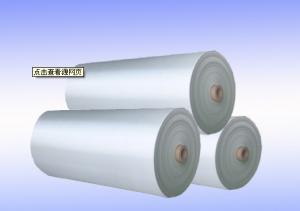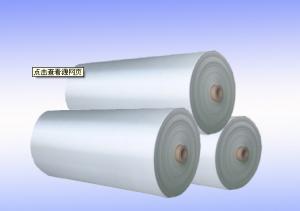E-glass Fiberglass Woven Roving,400g,2000mm
- Loading Port:
- Shanghai
- Payment Terms:
- TT or LC
- Min Order Qty:
- 5000 kg
- Supply Capability:
- 300000 kg/month
OKorder Service Pledge
OKorder Financial Service
You Might Also Like
Structure of woven roving Description
1,high strenth,corosion and resistence
2,consistent thickness,no fuzz
3,rapid impregnating
Glass woven rovings are bidirectional fabric by direct rovings in plain weave pattern. They are applicable for hand lay-up, winding and compress molding process, suitable for manufacturing tank, boat, automobile parts and other FRP products.
Main Features of the woven roving
1)Drapes well to suit the surface of intricate moulds
2)Fast wet-through and wet out
3)Easy handing and better appearance of the composite parts
4)Compatible with Unsaturated polyester resin
5)Very high laminate strength properties
Woven roving Images
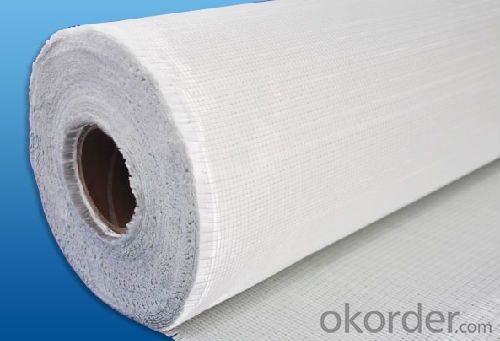
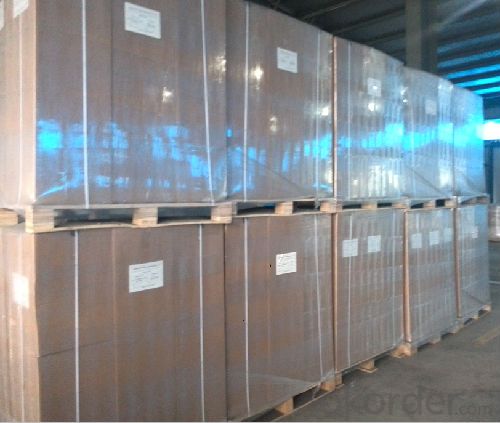
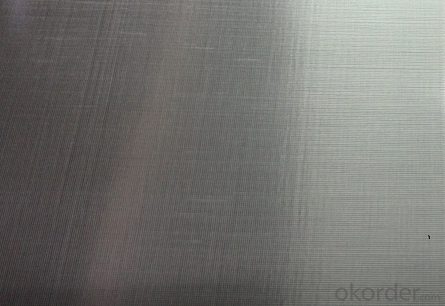
Woven roving Specification: weight& thickness
Normal type | EWR800-1000 | Test Standard |
Apperance | Good | GB/T 18370-2001 |
Density(warpxweft)(end/cm) | 1.8 X 1.5 | GB/T 7689.2-2001 |
Tex (warpxweft) | 2400x2400 | ISO1889 |
Moisture content(%) | ≤0.10 | ISO3344 |
Loss on ignition(%) | 0.40-0.80 | ISO1887 |
Glass | E-glass | N/A |
FAQ of woven roving:
Delivery Detail: 15-21days
Other spec. can be custom made as per customer's request.
- Q:What is the impact resistance of fiberglass mat tissue at high temperatures?
- The impact resistance of fiberglass mat tissue can vary at high temperatures, depending on factors like its specific composition, the manufacturing process, and the testing conditions. In general, fiberglass mat tissue has good impact resistance at high temperatures due to the inherent strength and durability of fiberglass materials. Fiberglass is recognized for its excellent mechanical properties, including high tensile strength and stiffness, which contribute to its overall impact resistance. Typically, fiberglass mat tissue maintains its structural integrity and can withstand impact without cracking or breaking at high temperatures. This is because the fiberglass fibers are designed to endure high temperatures and do not easily soften or deform. However, it's worth noting that the impact resistance of fiberglass mat tissue can be affected by other factors like the presence of additives or binders used during manufacturing. Some additives or binders may decrease impact resistance or make the tissue more prone to damage at high temperatures. To determine the specific impact resistance of a particular fiberglass mat tissue at high temperatures, it's crucial to refer to the manufacturer's specifications or conduct specific tests under controlled conditions. These tests can provide more precise information on how the material will perform under impact at elevated temperatures.
- Q:Can fiberglass mat tissue be used for insulation in hot climates?
- Certainly! Fiberglass mat tissue is applicable for insulation purposes in hot climates. Fiberglass possesses remarkable thermal insulation characteristics that render it suitable for both cold and hot environments. In hot climates, fiberglass insulation effectively impedes the transmission of heat from the external to the internal areas of a structure, thereby ensuring a pleasant indoor temperature. It functions as a shield by minimizing the conduction, convection, and radiation of heat. Moreover, fiberglass insulation exhibits fire resistance, durability, and non-absorbency, thus establishing itself as an optimal option for insulation in hot climates.
- Q:Is fiberglass mat tissue resistant to mold and mildew?
- Yes, fiberglass mat tissue is resistant to mold and mildew due to its non-porous and moisture-resistant properties.
- Q:How does fiberglass mat tissue perform in terms of heat insulation?
- Fiberglass mat tissue exhibits a relatively satisfactory performance when it comes to heat insulation. Its composition, consisting of delicate glass fibers and a bonding agent, grants it commendable thermal resistance properties. These fibers effectively capture pockets of air, which function as thermal barriers by diminishing heat transfer. Consequently, fiberglass mat tissue emerges as an appropriate insulation material for a diverse range of applications, including the construction industry, where it is employed to insulate walls, roofs, and attics. Furthermore, fiberglass mat tissue finds extensive use in the automotive and aerospace sectors to insulate engine compartments and curtail heat transfer through vehicle panels, respectively. Nevertheless, it is worth noting that although fiberglass mat tissue offers exceptional thermal insulation, it may not be as efficient as alternative insulation materials like foam or mineral wool, which possess higher thermal resistance values. Ultimately, the suitability of fiberglass mat tissue as an insulation material hinges upon the specific requirements of the project at hand.
- Q:Does fiberglass mat tissue provide any moisture insulation?
- Fiberglass mat tissue indeed offers a certain degree of moisture insulation. Renowned for its water-resistant attributes, fiberglass, when transformed into mat tissue, bolsters this quality even more. By serving as a protective shield, it thwarts the infiltration of moisture, averting potential harm to underlying substances. Nevertheless, it is crucial to recognize that fiberglass mat tissue does not possess absolute waterproofing abilities and might permit some moisture penetration over prolonged periods. Consequently, it is advisable to incorporate supplementary moisture insulation materials in scenarios demanding comprehensive waterproofing.
- Q:Is fiberglass mat tissue resistant to moisture?
- Fiberglass mat tissue, indeed, exhibits resistance to moisture. By tightly weaving strands of glass fibers and subsequently bonding them with a resin, this tissue fabricates a barrier that effectively thwarts the infiltration of moisture. Consequently, the moisture-resistant properties of fiberglass mat tissue render it exceptionally suitable for deployment in scenarios where water exposure or high humidity is anticipated. Moreover, this tissue's resistance to moisture aids in averting the proliferation of mold or mildew, thereby establishing it as an appropriate selection for environments prone to dampness.
- Q:Is fiberglass mat tissue suitable for insulation in residential buildings?
- Yes, fiberglass mat tissue is suitable for insulation in residential buildings. Fiberglass mat tissue is a type of insulation material that is made from glass fibers and is commonly used in residential buildings due to its excellent thermal properties. It has a high R-value, which means it provides effective insulation by reducing heat transfer, keeping the interior of the building warm during winter and cool during summer. Fiberglass mat tissue is also known for its durability and long lifespan, making it a reliable choice for residential insulation. It is resistant to moisture, mold, and pests, ensuring a healthy and comfortable living environment. Additionally, fiberglass mat tissue is lightweight and easy to install, making the insulation process efficient and cost-effective. Furthermore, fiberglass mat tissue is fire-resistant, which is an essential feature for residential buildings. It acts as a barrier, preventing the spread of fire and protecting the occupants and property from potential hazards. Overall, fiberglass mat tissue is a suitable and popular choice for insulation in residential buildings due to its thermal efficiency, durability, fire-resistant properties, and ease of installation.
- Q:What are the different types of fiberglass mat tissue available?
- There are various types of fiberglass mat tissue available, including chopped strand mat (CSM), continuous filament mat (CFM), and surface veil mat. Each type has different characteristics and is used for specific applications in industries such as construction, automotive, and marine. CSM is commonly used for general purpose applications, CFM provides higher strength and stiffness, and surface veil mat is used for surface finishing and improving the aesthetics of fiberglass products.
- Q:Can fiberglass mat tissue be used for pipe insulation?
- No, fiberglass mat tissue is not typically used for pipe insulation. Fiberglass mat tissue is a thin material that is commonly used for reinforcing purposes in various industries. It is not designed to provide thermal insulation or to prevent heat loss in pipes. For pipe insulation, materials such as foam, mineral wool, or fiberglass pipe insulation are more commonly used. These materials are specifically designed to provide thermal insulation and protect pipes from heat loss, condensation, and freezing.
- Q:What is the tear resistance of fiberglass mat tissue?
- The tear resistance of fiberglass mat tissue is typically high, making it a strong and durable material that is resistant to tearing.
1. Manufacturer Overview |
|
|---|---|
| Location | |
| Year Established | |
| Annual Output Value | |
| Main Markets | |
| Company Certifications | |
2. Manufacturer Certificates |
|
|---|---|
| a) Certification Name | |
| Range | |
| Reference | |
| Validity Period | |
3. Manufacturer Capability |
|
|---|---|
| a)Trade Capacity | |
| Nearest Port | |
| Export Percentage | |
| No.of Employees in Trade Department | |
| Language Spoken: | |
| b)Factory Information | |
| Factory Size: | |
| No. of Production Lines | |
| Contract Manufacturing | |
| Product Price Range | |
Send your message to us
E-glass Fiberglass Woven Roving,400g,2000mm
- Loading Port:
- Shanghai
- Payment Terms:
- TT or LC
- Min Order Qty:
- 5000 kg
- Supply Capability:
- 300000 kg/month
OKorder Service Pledge
OKorder Financial Service
Similar products
New products
Hot products
Related keywords
